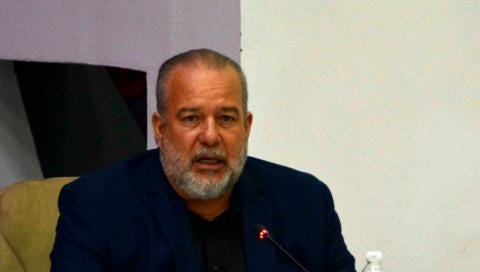On December 18, 2024, Cuban Prime Minister Manuel Marrero Cruz presented a report on the economy to the National Assembly of People’s Power (ANPP for its initials in Spanish). The National Assembly of People’s Power is the highest legal and constitutional authority in Cuba. Its 405 deputies are elected directly and indirectly by the people in a three-stage process that begins with neighborhood nomination assemblies. The electoral process is supported by national, provincial, and municipal candidacy commissions constituted by representatives of mass organizations of workers, students, farmers, women, and neighborhoods, and it is conducted without the participation of the Communist Party of Cuba or any other political party. The current legislature of ANPP is the tenth that has been constituted since the system of people’s power was established by the Constitution of 1976, which was approved in referendum by more than 90% of the people.
The position of Prime Minister was established by t…


